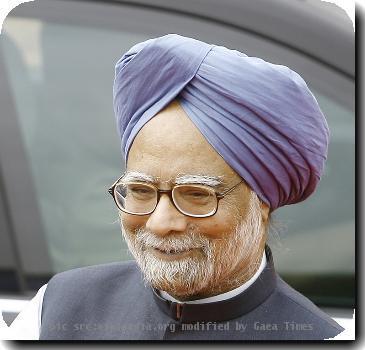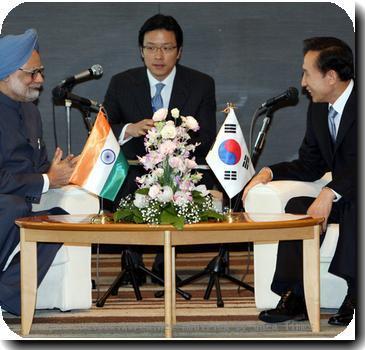India to discuss Sri Lanka reconciliation with Rajapaksa
By M.R. Narayan Swamy, IANSMonday, June 7, 2010
NEW DELHI - India, heavily involved in the reconstruction of Sri Lanka’s northeast, will discuss the process of political reconciliation in the country when President Mahinda Rajapaksa arrives here Tuesday on a state visit.
On the agenda of the official discussion will be how and what kind of plans Rajapaksa has in his mind to give the Tamil and Muslim minorities self-governance they can be proud of.
Since the time he became president in November 2005, Rajapaksa has repeatedly promised to devolve powers to the minorities.
But he and his aides have also argued that he needed to be political secure to unleash devolution that would be acceptable to the Sinhalese majority while also pleasing the Tamils and Tamil-speaking Muslims.
After militarily crushing the Tamil Tigers in May 2009, Rajapaksa scored decisive wins in the presidential and parliamentary elections in January and April this year, becoming one of the most powerful presidents in Sri Lanka.
Now, analysts and policy makers say, Rajapaksa needs to deliver.
Rajapaksa will review a military guard of honour at the Rashtrapati Bhavan to kick-start a busy Wednesday when he will lay a wreath at the Raj Ghat and follow it up with a meeting with his Indian counterpart Pratibha Patil and wide-ranging talks
with Prime Minister Manmohan Singh.
After some private engagements, Rajapaksa returns to Colombo Friday.
Manmohan Singh, who first became prime minister in 2004, has closely followed the developments in Sri Lanka since Rajapaksa took power the next year. Both the leaders have interacted many times.
The Indian prime minister is aware of the complexities in Sri Lanka, including Rajapaksa’s promises on devolution and the ground reality besides the aspirations of the minorities and the role of Sinhalese hardliners opposed to devolution.
On its part, India has been involved heavily in the reconstruction of Sri Lanka’s northern and eastern provinces, the war theatre, and the resettlement of those worst affected by the conflict that bled the country for over a quarter century.
With economic ties booming and Indian tourists flocking to Sri Lanka like never before, New Delhi believes it can contribute substantially to Colombo’s efforts to restore confidence in the north and east.
Among other things, India has contributed huge quantities of medicines, cement and shelter material for those hit by the war and farm packs to resume agriculture in the region.
India has also treated thousands of war wounded and given away Jaipur Foot for those who lost their legs in the war. It has helped de-mine vast areas.
It wants to lay railway lines in the north, ensure railway rolling stock, set up a large cultural centre in Jaffna, five vocational centres, renovate Jaffna’s Duriappah Stadium, and provide for war widows in Batticaloa in the east.
It wants to give seeds to farmers in the north and east besides pre-fabricated houses on a massive scale.
The sweeping and comprehensive rehabilitation package, mostly done without much fanfare, totals a whopping Rs.2,300 crore, including a $413 million Line of Credit. And more is in the offing.
Sri Lanka analyst P. Sahadevan of the Jawaharlal Nehru University here is, however, one of the many now in India who think that Rajapaksa is unlikely to do anything substantial on the devolution front.
“He won’t say he won’t do anything.” Sahadevan told IANS. “But his definition of political reforms is radically different from what others expect from him. It is time India told him the minimum benchmark.
“But I doubt if that will happen. We seem to be hesitant,” he said. “And Mahinda Rajapaksa increasingly looks like a monarch.”

